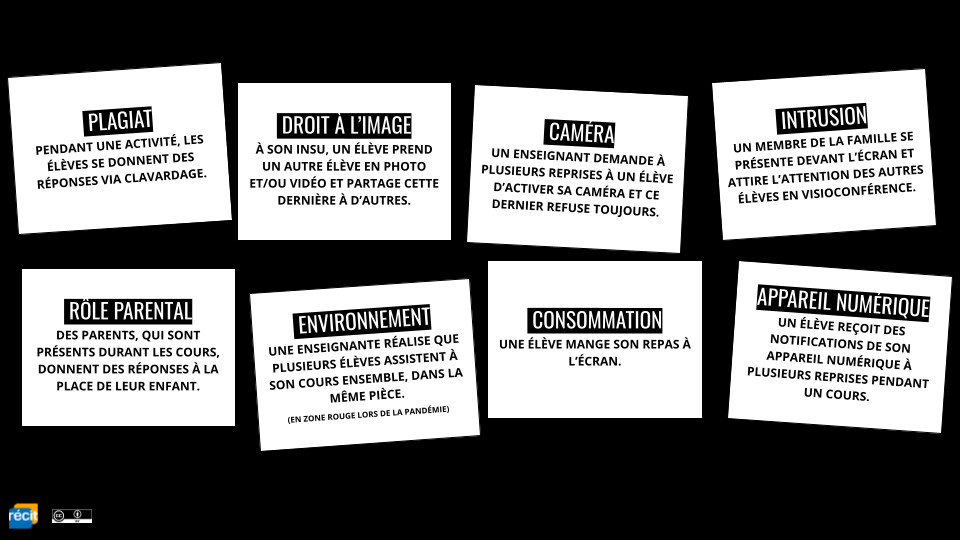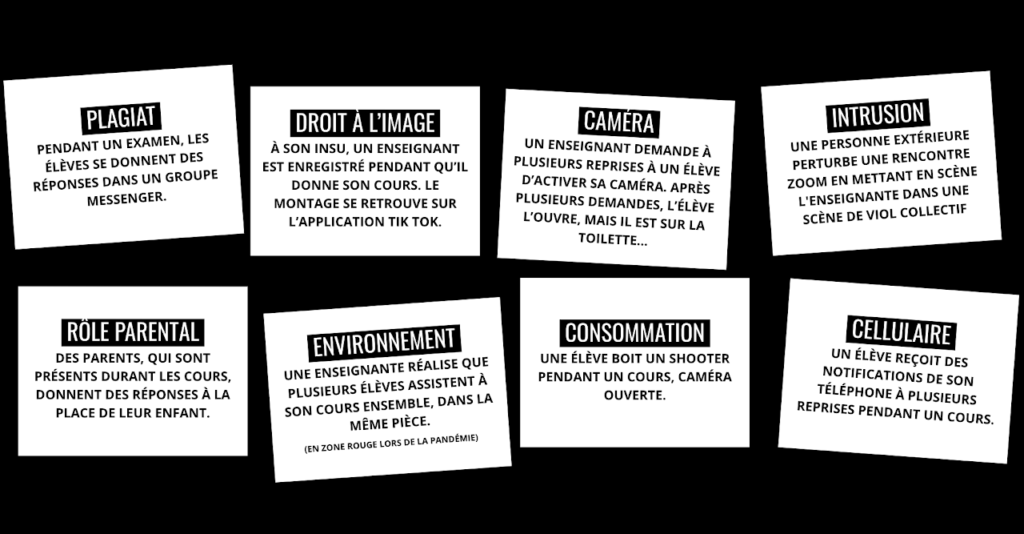Le vieil adage « vaut mieux prévenir que guérir » s’applique à toutes sortes de contextes. Même lorsqu’il est question de gestion de comportements en classe. Julie April et Jérôme Lessard, conseillers au service national du RÉCIT, domaine du développement de la personne (RÉCIT DP), présentent quelques ressources pour aider les enseignants.
Le contexte de l’enseignement à distance a mis en lumière l’importance pour l’enseignant d’établir une relation positive avec ses élèves, afin de pouvoir prévenir les situations embêtantes et de mieux y faire face lorsqu’elles surviennent. C’est en ce sens que l’équipe du RÉCIT DP a développé le microsite Avant que ça pète, qui propose une démarche en trois temps aux enseignants.
Avant
« N’attendez pas que les comportements négatifs se produisent pour aborder le sujet avec vos élèves, que ce soit en classe ou à distance. Si tout part d’une relation de confiance entre l’enseignant et ses élèves, il ne faut pas hésiter à nommer de façon explicite les comportements attendus », indique Jérôme Lessard.
Ainsi, il peut être utile de discuter du code de vie de l’école en classe, ainsi que des crimes et comportements interdits en ligne (à ce sujet, (re)lisez cet article déjà paru sur l’École branchée). Le rôle attendu des parents lors de l’enseignement à distance peut aussi être traité autant avec les élèves que les parents eux-mêmes. Attention, dans tous les cas, la discussion se doit d’être constructive et non pas servir uniquement à faire une liste d’interdiction.
Pour aller plus loin et faire en sorte que les élèves se sentent davantage impliqués, l’équipe du RÉCIT DP propose d’ailleurs une démarche en 5 étapes pour co-construire un code d’éthique avec les élèves. Nous vous la présenterons dans un prochain article.
Pendant
Malgré les interventions préventives, il peut arriver que des situations non désirées surviennent. Les témoignages d’enseignants sont nombreux et le niveau de gravité des comportements est variable. « Il faut apprendre à faire la distinction entre ce qui est inapproprié, inacceptable et illégal. Puis, le jugement professionnel et le niveau de tolérance aident à doser l’intervention. Ensuite, il y a plusieurs façons de réagir et il n’y a pas de bonne réponse », fait valoir Julie April.

En fait, il appartient à chacun de trouver son style d’intervention. Les interventions pourront être non verbales (ignorance intentionnelle, silence malaisant, signes directs, etc.), par appel direct (à l’oral ou dans le clavardage en message à tous ou privé), ou consister en un retrait de l’élève (mise en sourdine, désactivation de la caméra, mise en salle d’attente, etc.).

Dans tous les cas, n’hésitez pas à garder des traces des cours en ligne (enregistrement, historique du clavardage, listes de participants, etc.), dans la mesure où cela pourra être utile et justifiable par la suite. De plus, préparez-vous à faire les suivis nécessaires après une intervention. « Il est important d’appliquer les conséquences prévues au risque de ne pas être pris au sérieux par la suite. Il faut être cohérent », dit Jérôme Lessard.
Après
Il est possible d’utiliser un comportement ou un événement perturbateur (spécialement s’il est récurrent) comme opportunité de réviser les règles contenues dans le code d’éthique de la classe. Cela peut aussi devenir une occasion à saisir pour développer la citoyenneté à l’ère du numérique chez les élèves (réflexion éthique, pensée critique, etc.). Le site du RÉCIT DP propose de nombreuses ressources pour aller plus loin.
Retrouvez l’intégral du webinaire Avant que ça pète ainsi que d’autres capsules vidéo sur le site du RÉCIT DP.
Dimension(s) de la compétence numérique en lien avec cet article
1- Agir en citoyen éthique à l’ère du numérique
Voir le Cadre de référence.





 Recevez l'Info #DevProf et l'Hebdo pour ne rien manquer des nouveautés de l'École branchée!
Recevez l'Info #DevProf et l'Hebdo pour ne rien manquer des nouveautés de l'École branchée!




